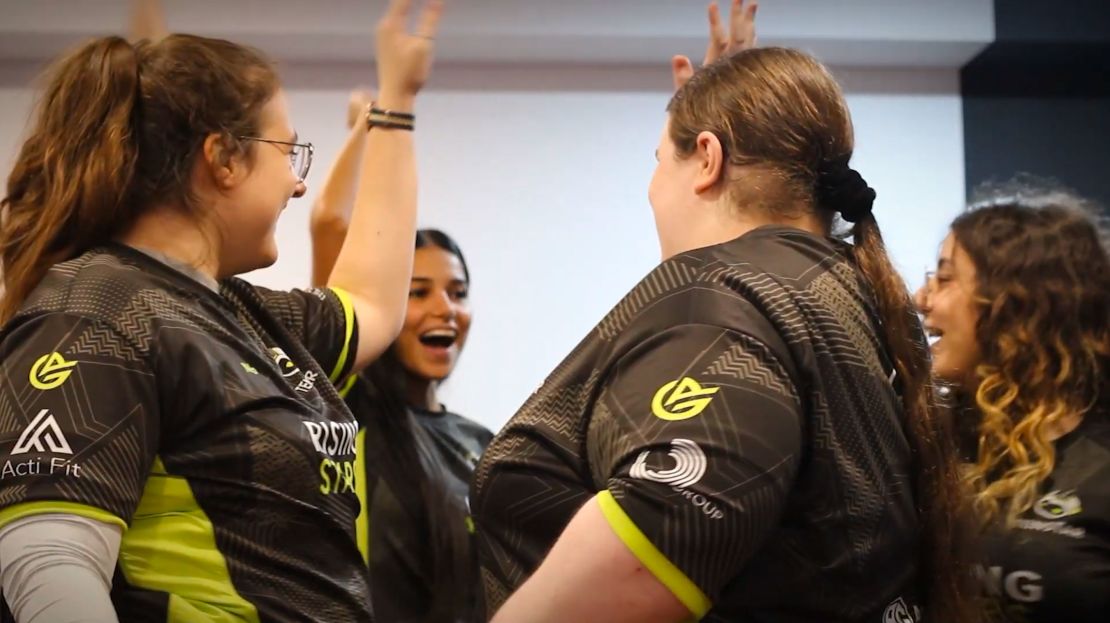The game boosting diversity in esports and creating role models for the next generation

Those within esports often get tired with constant comparisons with traditional sports, but the increasingly popular world of competitive gaming can often be an example for those more historic sports to follow.
While the industry as a whole is still male-dominated, organizations have launched projects in the hope of creating a more diverse gaming environment.
An example of this is the Valorant Game Changers initiative which looks to provide a platform for marginalized genders to compete and develop into professional players.
Valorant is a first-person shooting game developed by Riot Games – of League of Legends fame – and has approximately 12 million players logging in each month.
The Game Changers series runs alongside the main competition and looks to foster marginalized talent in a safe environment away from any potential harassment.
Riot Games’ Senior Brand Manager Vera Wienken has worked closely on launching the initiative and says it’s already been a success.
“It is very important to us to have real representation of the community within esports, within our pro players, coaches, managers,” she told CNN Sport
“Therefore, we founded Game Changers and really hope to see that, in the future, esports overall becomes more diverse.”
‘You don’t need to sing it to the world’
Wienken says representation is key to attracting and maintaining female participation in Valorant and esports in general.
Valorant itself is a relatively new game and Wienken thinks its format and narrative open itself up to a more diverse audience.
The characters you can play as, for example, don’t necessarily conform to gender stereotypes and this helps make the game more accessible, says Wienken.
“There’s a lack of role models,” she added when asked why the industry is still attracting less women than men.
“What we would like to see and what’s happening already, which is amazing, is these women pro players are becoming role models for others and sharing their path, sharing their story so that women know and find their entry points.”
Valorant EMEA host Yinsu Collins is one of the many to have suffered from online harassment during her career in esports, but she says she’s developed a thick skin in order to ignore it.
The journalist, who previously worked in traditional sports media, says Valorant has helped educate people within the industry of the discrimination marginalized groups face.
“I don’t think I’ve ever seen a title that has produced and invested in a female scene this quickly,” she told CNN Sport.
“The way Riot were like: ‘We’re going to prioritize the women’s side. We’re not going to wait three or four years to kind of give you guys a big tournament. We’re just going to do it right off the bat.’
“I just think the dedication, the investment, obviously, you can see the way Riot is prioritizing having diversity.
“And you don’t need to sing it to the world, you just do it through your actions.”

Those within esports hope for a day when gender is no longer spoken about.
What does progress look like?
While Collins has been sent negative messages on social media, she has also seen people reflect on their past actions.
She says she occasionally gets messages from boys who want to apologize for certain things they’ve said or the way they’ve behaved online in the past.
“Hopefully, in a few years, maybe a decade’s time, we wouldn’t even have to talk about representation because it would just be a normal thing,” Collins added.
Wienken says Game Changers has already had a huge impact on the amount of women playing and watching the game and there is more to come from the initiative, with this year’s launch of the Game Changers Academy.
This new, community-driven format hopes to act as a stepping stone for young women who are interested in making it as a professional esports player.
By creating these new entry points for women, Wienken hopes that there won’t be a need for female-led projects such as the one she works with in the future.
“I hope that we don’t see gender anymore when we are looking at the professional players, and we might not even need Game Changers anymore in the future because it’s just so normal that esports is diverse,” she added.
For Collins, progress is all about how the media and wider society frame women in esports.
She’s aware it will take time but is looking forward to the day when women in the industry aren’t always asked to talk about their gender.
“Every single time a talent line up is being announced or every single time we talk about Game Changers, I want the conversations to be about how the competition is amazing or this player has a great personality or just the crazy storylines. The same way we talk about men’s sport, really,” she said.
“I think if we can get to a point where women’s esports and female talent aren’t just being talked about because of their gender, but they’re actually being talked about because they’re good at what they do, I’ll be pretty satisfied.”







